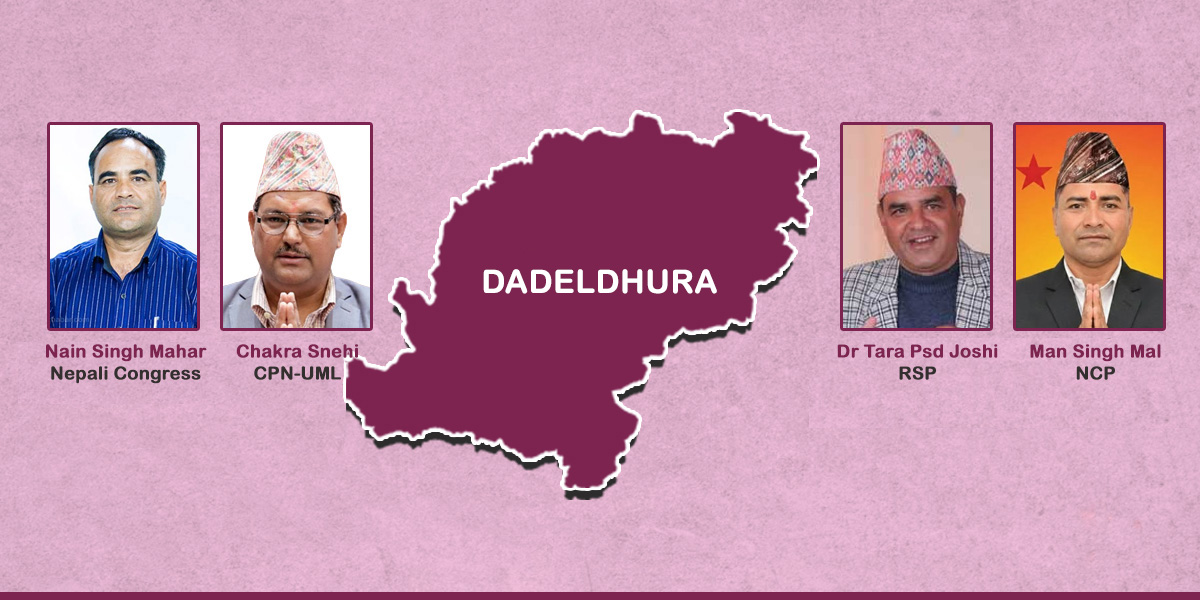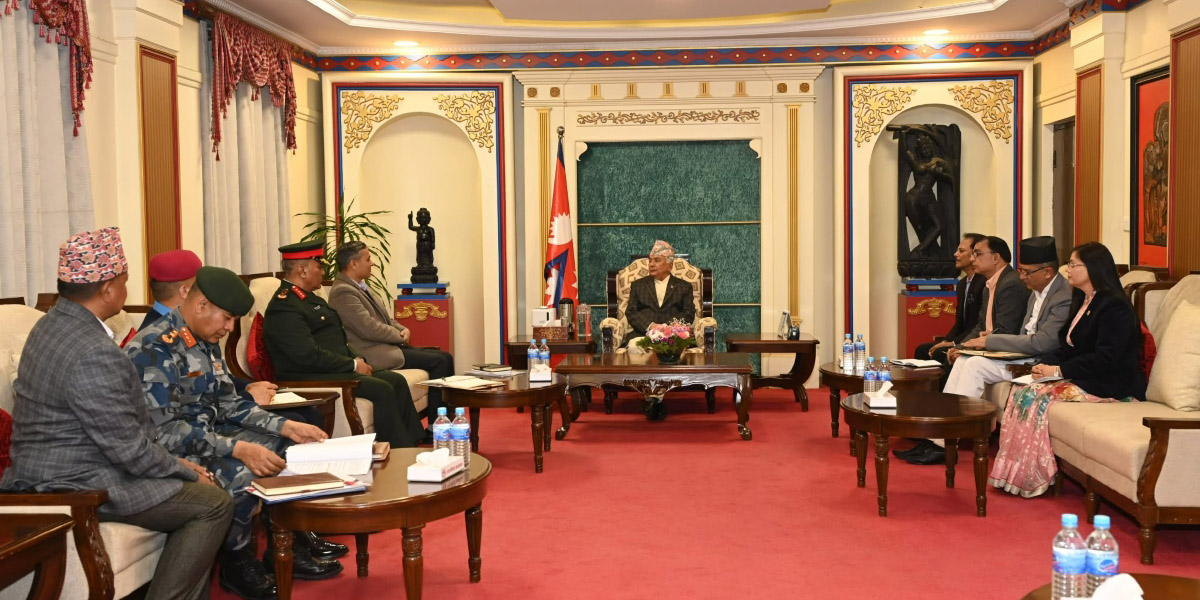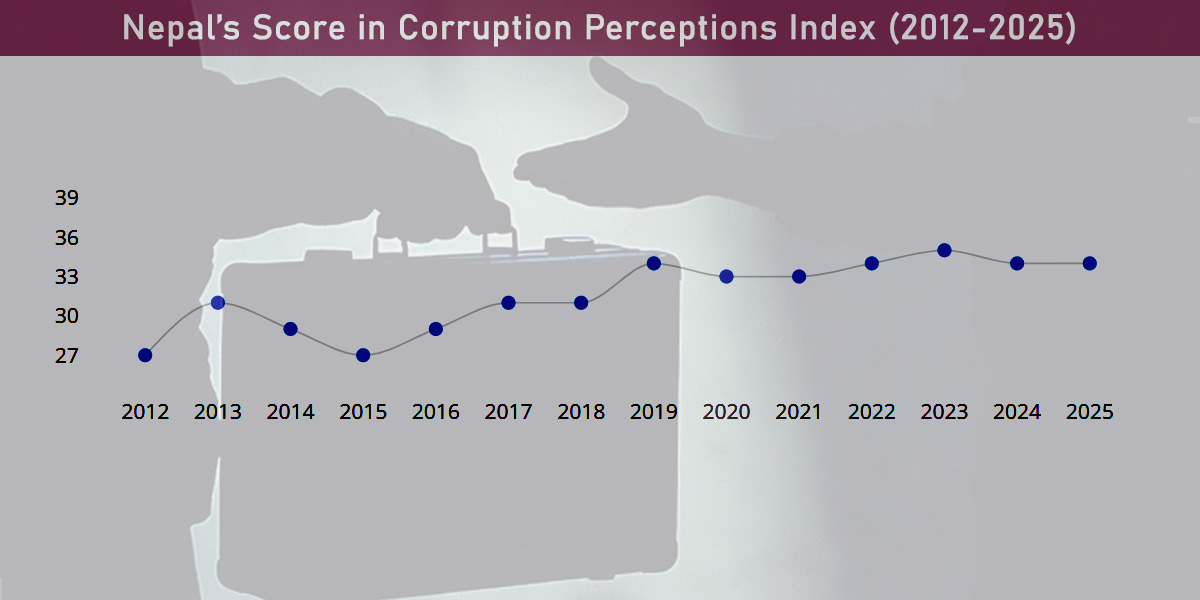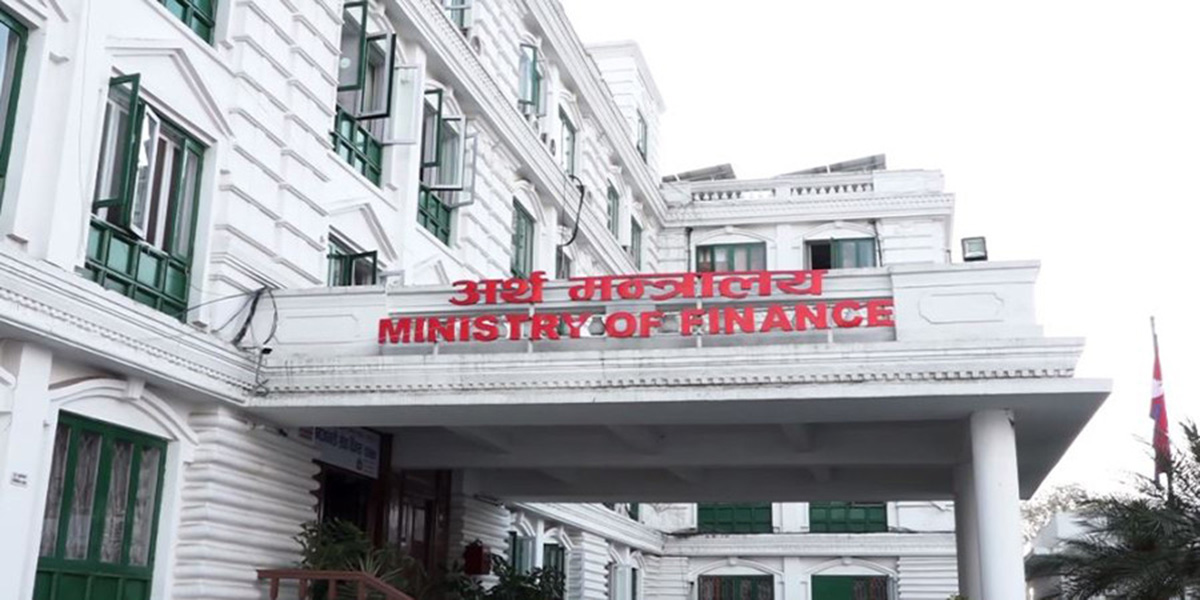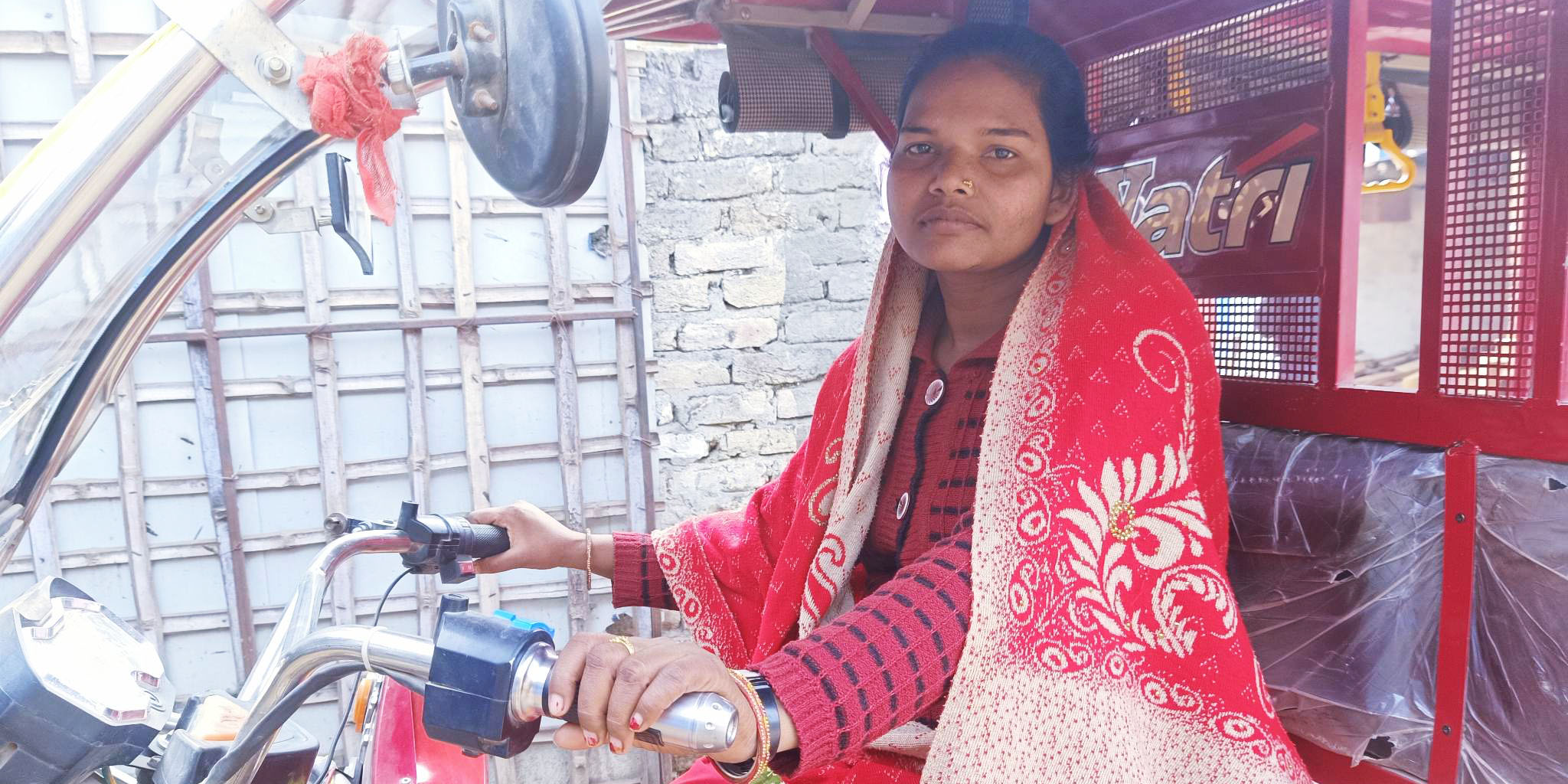 Photo: Neha Jha/Himal Press
Photo: Neha Jha/Himal Press
JANAKPURDHAM: Despite the notion that men and women are equal, Nepali society seems to be the opposite, with limited equality even among the youth who embrace modernity. Discrimination between men and women is prominent in the workforce, and women often struggle to overcome inequality. However, some women like Babita Kumari Raut from Janakpur Sub-metropolitan City-13 have managed to break through the barriers, and increase their income and establish their identity.
At the age of 27, Babita took a loan of Rs 200,000 five years ago to buy a second-hand electric rickshaw (e-rickshaw). Initially, she faced challenges due to the fact that only men were involved in the profession. Nonetheless, she persisted and overcame the obstacles.
Babita’s journey was not without challenges. As a woman driving an e-rickshaw, she was often ridiculed by customers, male colleagues, and drivers who did not approve of her profession. However, she persevered and overcame their prejudice. Today, those same colleagues, who once looked down upon her, are seeking her assistance when needed.
The determined woman viewed the professional obstacles as a social challenge and remained committed to her work. Her husband, Dev Narayan Bhediyar, provided her with the necessary support and help to confidently drive the e-rickshaw. Babita acknowledged her husband’s contribution, stating, “I received a lot of support from my husband, who taught me how to drive the e-rickshaw with confidence.”
As a woman driving an e-rickshaw, she was often ridiculed by customers, male colleagues, and drivers who did not approve of her profession.
Babita’s husband, Dev Narayan, used to drive a bus. But due to health issues, he has been unable to work and has been at home for nearly two years. Prior to Babita’s success as a driver, the family relied on Dev Narayan’s income and Babita’s earnings from selling fruits in baskets to make ends meet. Now, Babita is responsible for ensuring that the family had food on the table and was able to support her children’s education.
Today, Babita earns between Rs 500 and Rs 1,000 per day which has enabled her to cover her husband’s medical expenses and support her children’s education.
As the number of e-rickshaws in Janakpurdham was not as high five years ago, she used to earn more compared to now. Despite increased competition, Babita still earns enough to meet her household expenses and invest in her children’s education.
Similarly, Ramsona Devi Sah, a 31-year-old resident of Pulchowk in Janakpur-16 drives an e-rickshaw. Her earnings have been a vital source of income for her family. Her husband, Ram Udgar Sah, recently returned from foreign employment and bought an e-rickshaw by taking out loans. The income from the e-rickshaw has been sufficient to support their family.
Initially, Ramsona faced criticism from others who doubted her abilities due to her lack of education. She used to believe that she had to rely on others, but now she knows that she can take care of herself and her family.
When her husband had to leave the country to work in Malaysia, he taught Ramson how to drive an e-rickshaw. Gradually she became more confident behind the wheel. Today, Ramsona takes pride in earning a living outside of the house like her husband and being able to provide for her family and children. She is now in charge of running the household since her husband’s departure to Malaysia.
Initially, Ramsona faced criticism from others who doubted her abilities due to her lack of education. She used to believe that she had to rely on others, but now she knows that she can take care of herself and her family.
Ramsona’s daily earnings are between Rs 1,500 and Rs 2,000, which has been crucial in supporting her family of four daughters and sons. She leaves the house at 5 am and returns around 7 pm, working long hours to make ends meet. She spends around Rs 5,000 per month for charging and other expenses of the rickshaw.
She is determined to educate her children up to higher education by driving her e-rickshaw. She wasn’t able to pursue her own studies due to her family’s poor financial condition in the past, but she dreams of providing a better future for her children.
“I have four children and my dream is to raise them to be good people,” she said.

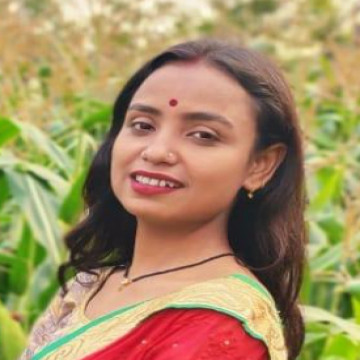
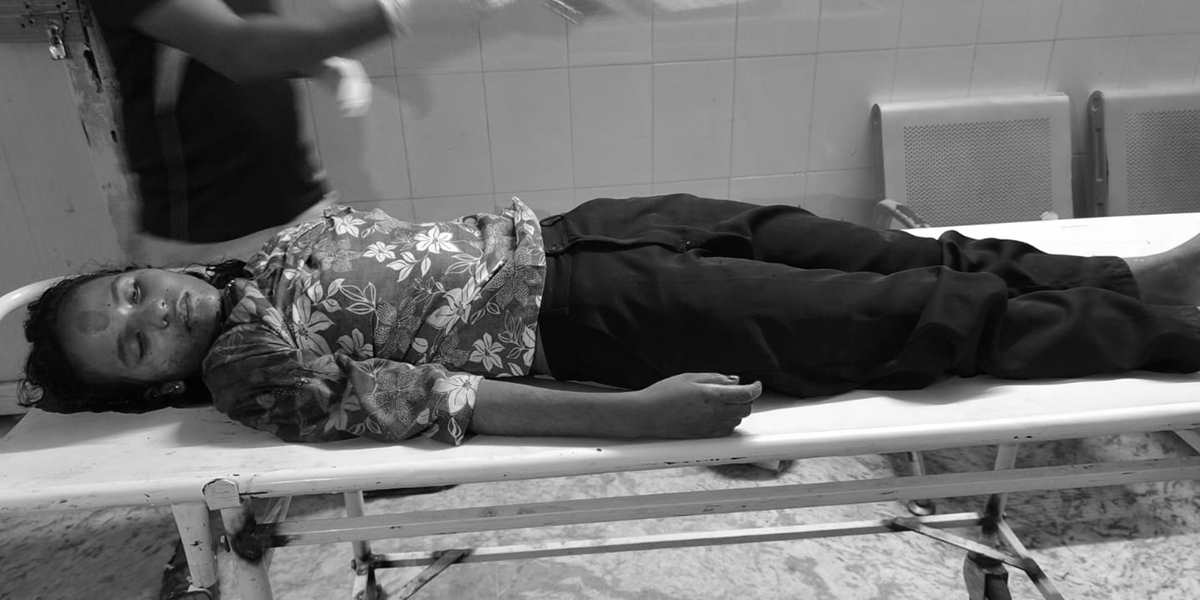
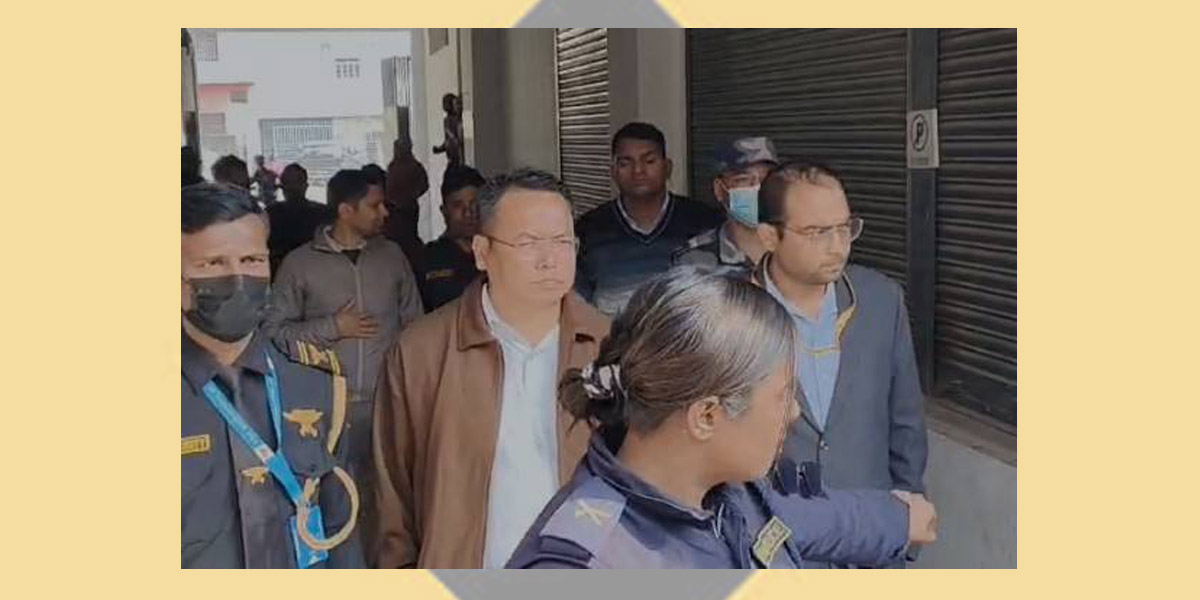
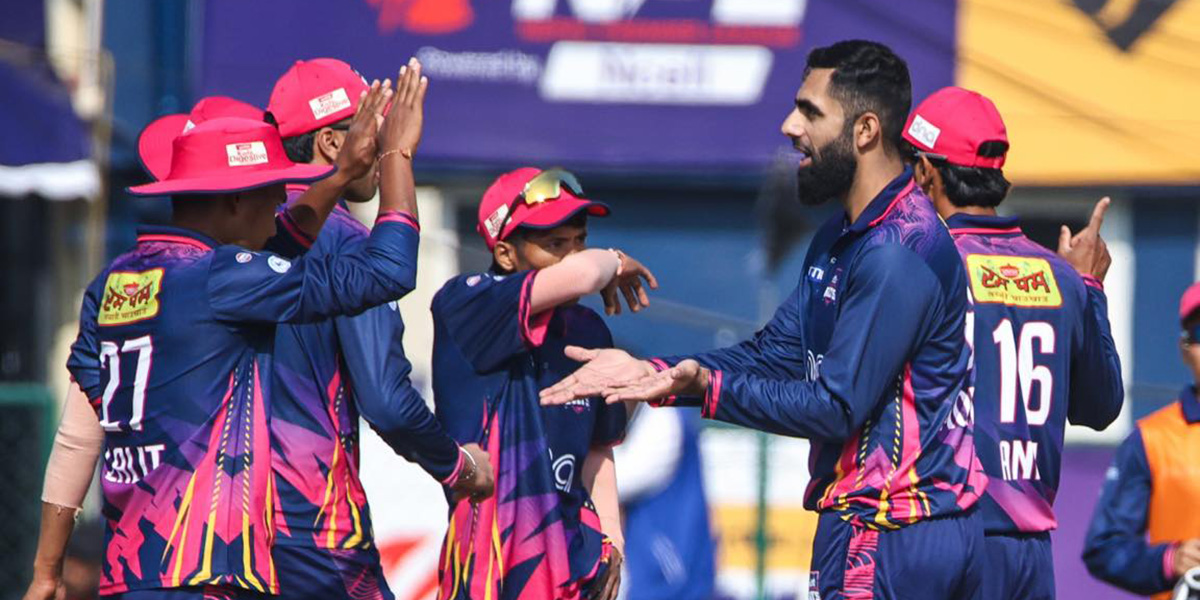
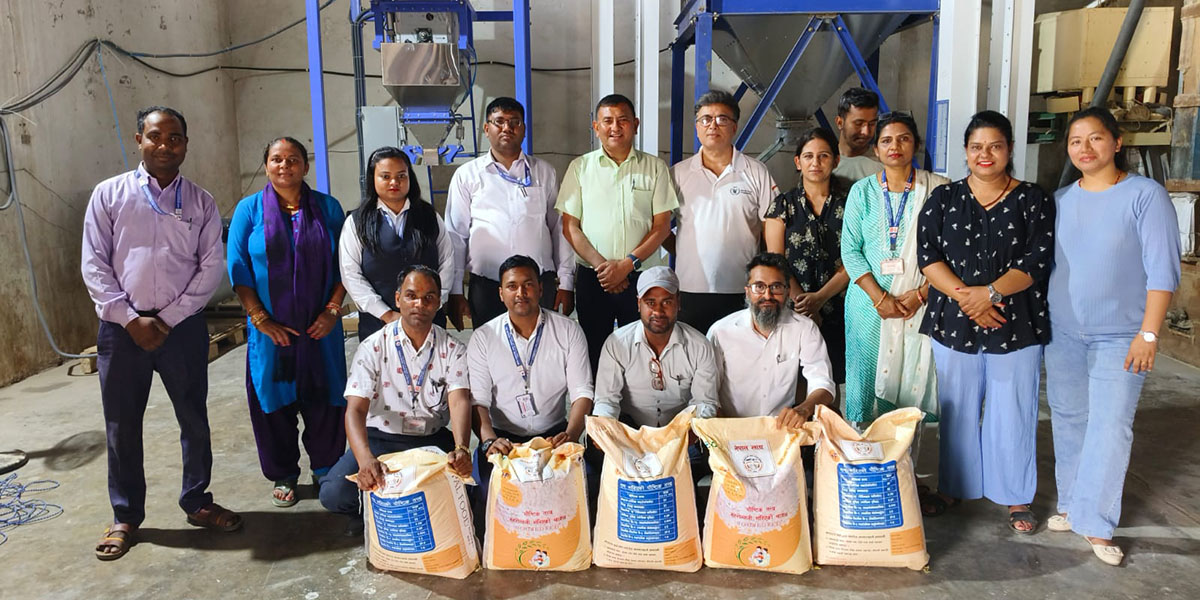


![Maha Shivaratri being celebrated across the country [With Pictures]](https://en.himalpress.com/wp-content/uploads/2026/02/HRB_KTMImage2026-02-15at7.37.40AM1.jpg)


